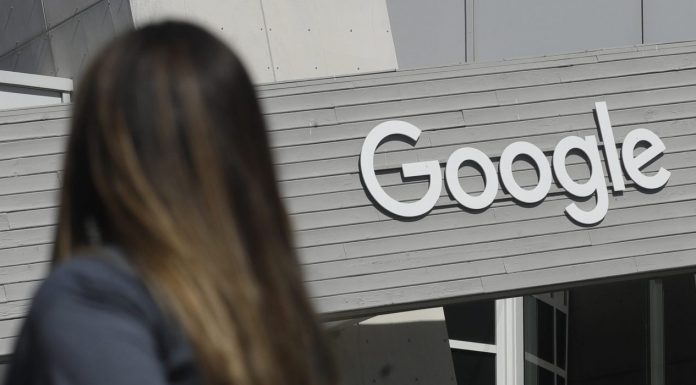(Headline USA) Google is moving into full authoritarian mode, cracking down on digital ads promoting what they determine to be false climate change claims or being used to make money from such content.
The tech giant is claims it is hoping to limit revenue for alleged climate change deniers and stop the spread of so-called misinformation on its platforms.
Google and other Big Tech publishers have increasingly veered toward active censorship of positions that undermine leftist dogma. Several of those, however, have later proven to be wrong, such as suppression of reports on Hunter Biden’s laptop and the coronavirus lab-leak theories.
The company said Thursday in a blog post that the new policy will also apply to YouTube, which last week announced it would also be determining what is and isn’t vaccine misinformation.
“We’ve heard directly from a growing number of our advertising and publisher partners who have expressed concerns about ads that run alongside or promote inaccurate claims about climate change,” Google said, failing to explain how the accuracy of such claims should be determined.
The restrictions “will prohibit ads for, and monetization of, content that contradicts well-established scientific consensus around the existence and causes of climate change,” the blog post said.
That scientific consensus, of course, hails from leftist academics and liberal-leaning agencies; opposing views and opinions, no matter how potentially valid, are not to be considered.
Along with addressing an undisclosed number of publishers’ frustrations, the changes are also apparently intended to strip payment from online influencers who make money from YouTube videos promoting alleged climate change denial theories by putting ads on them.
Restrictions will apply on content calling climate change a hoax (regardless of any supporting evidence) or denying, apparently to any degree, that greenhouse gas emissions and human activity have contributed to the earth’s long-term warming, the company said.
Experts questioned whether the changes would be effective.
“How will they determine what is misinformation (i.e. lies) or simply incomplete or misleading information?” asked Lisa Schipper, environmental social science research fellow at the liberal University of Oxford’s Environmental Change Institute.
She cited as an example images of clean energy by fossil fuel companies, apparently worried that any clean energy claims made by such companies are nefarious public relations stratagems.
“In some ways, these types of adverts that suggest a different kind of truth might be even more damaging because they look innocuous, while they simultaneously serve to greenwash the company,” Schipper said.
Google will use both automated tools and human reviewers to enforce the policy when it takes effect in November for publishers and YouTube creators and in December for advertisers.
Advertisements will still be allowed, at least for now, on content that’s about other related topics like public debates on climate policy, as long as they comport with a leftist agenda.
Google is one of the two dominant players in the global digital ad industry, earning $147 billion in ad revenue last year.
Facebook, the other big player, prohibits ads used to spread alleged misinformation though it doesn’t list specific topics including climate change denial.
Earlier this week, Google rolled out new features aimed at helping users reduce their carbon footprints, including a search function that shows which flights have lower emissions, something members of the Biden administration could find useful.
Misinformation, as defined by the Left, and the role that social media companies have in amplifying it has become a big concern for many people. Some 95% of Americans said misinformation is a problem when trying to access important information, according to a poll Friday from The Pearson Institute and The Associated Press-NORC Center for Public Affairs Research.
Facebook’s problem with supposedly false information came to light this week when Frances Haugen, a former data scientist turned whistleblower, told members of Congress that the company knows its platform spreads alleged misinformation but refuses to make changes that could hurt its profits.
Adapted from reporting by the Associated Press

